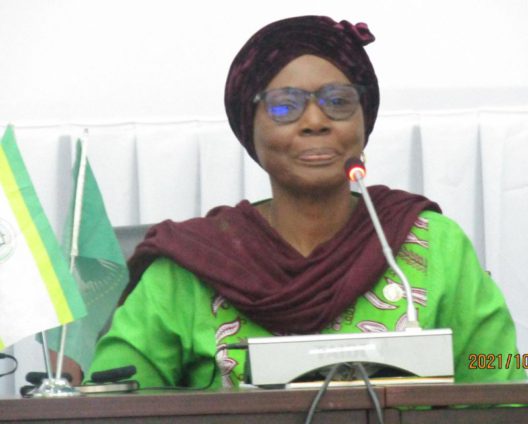The African Court on Human and People’s Rights says in strategic or public interest human rights litigation, the media are critical before, during, and after any successful justice process.
“Depending on how the stories are cast, presented, told and communicated, the media must, therefore, adopt innovative ideas on making human rights more attractive to the relevant stakeholders in the African context,” Lady Justice Imani D. Aboud, African Court President stated.
Lady Justice Aboud was speaking during a three-day African Court on Human and Peoples’ Rights Media Training for Senior Editors and Journalists in Dar es Salaam, Tanzania.
She said communication about the Court should be framed to meet the needs of its various stakeholders.
The African Court President noted that the training was also to empower the core senior editors and journalists to duly perform their mission in the chain of actions of the African Court.
“Whether for litigants to bring cases, for counsel to defend litigants, for academics or other knowledgeable institutions to act as amici curiae, for States to implement decisions or for regional organs to supervise the enforcement of the Court’s proceedings, the media plays a crucial role,” she said.
The African Court was established under Article 1 of the Protocol to the African Charter on Human and Peoples’ Rights.
The Protocol which was adopted by Member States of the then Organization of African Unity (OAU) in Ouagadougou, Burkina Faso, in June 1998 came into force on January 25, 2004.
African Court Media Network, therefore, questions the commitment of the African Union to the mandate of the African Court as currently only 31 AU Members States have ratified the Protocol to ensure the protection of human and peoples’ rights in Africa.
About 24 AU Member Countries have refused to ratify the African Court Protocol.

The countries which have ratified are Algeria, Benin, Burkina Faso, Burundi, Cameroon, Chad, Côte d’Ivoire, Comoros, Congo, Democratic Republic of Congo, Gabon, The Gambia, Ghana, Kenya, Libya, Lesotho, Mali, Malawi, Mozambique, Mauritania, Mauritius, Nigeria, Niger, Rwanda, Sahrawi Arab Democratic Republic, South Africa, Senegal, Tanzania, Togo, Tunisia, and Uganda.
However, only six out of the 31 State Parties to the Protocol had deposited the declaration, recognizing the competence of the African Court to receive cases directly from NGOs and individuals.
The six States are Burkina Faso, The Gambia, Ghana, Mali, Malawi, and Tunisia.
The African Court Media Network, therefore, challenged the AU member states to show commitment to the African Continental Court to protect the human rights of its people.
Latest Stories
-
GFA appoints Zito, Preko and Amadu to take charge of newly created male national teams
52 seconds -
Today’s front pages: Tuesday, April 23, 2024
35 mins -
Siblings remanded over alleged missing penis
36 mins -
174 countries to gather in Ottawa for pivotal talks on plastic pollution
41 mins -
6 tiny tricks that make you immune to disappointment
42 mins -
Dumsor: Energy sector needs a leader, says Nana Amoasi VII
44 mins -
Reality zone with Vicky Wireko: Ending malaria: Optimism as world marks Malaria Day
47 mins -
Frema Opare supports Asanteman queen mothers with GH¢200k donation
5 hours -
Government is committed to connecting every region with rail line – Peter Amewu
5 hours -
Chief of staff appeals to Asantehene for support in Affirmative Action Bill passage
5 hours -
PAC orders Wa East DCE to release MP’s common fund with immediate effect
5 hours -
Ghana will not bear the cost of repairing faulty train – Railways Minister
5 hours -
You’re not an engineer; we inspected rail tracks before test run – Amewu tells Mahama
6 hours -
Photography, music and networking: Twinsdntbeg leads the way
7 hours -
Man, 20, electrocuted after heavy rainstorm in Central Tongu District
7 hours

